Understanding the origins and ownership of websites and domains is crucial for those navigating the digital realm, and this is where WHOIS Lookup comes into play. WHOIS (pronounced “who is”) is a fundamental search tool that unveils the hidden details about domain name registrations. This guide aims to shed light on WHOIS Lookup, highlighting its pivotal role in the online world. By the end of this guide, you’ll grasp not only what WHOIS Lookup is but also why it is indispensable for various online activities.
Table of Contents
Understanding WHOIS Lookup
WHOIS Lookup provides information about domain names and their registrants. It typically includes:
- Domain owner’s name and contact details.
- Domain registrar’s information.
- Domain creation and expiration date.
- Name servers associated with the domain.
- Domain name status (active, expired, etc.).
- Domain’s administrative and technical contacts.
It also offers different types of domain information, such as:
- Registrant Contact: Information about the domain owner, including name, address, email, and phone number.
- Administrative Contact: Details of the person or organisation responsible for domain management, typically with contact information.
- Technical Contact: Information about the technical administrator responsible for DNS and server configurations.
- Registrar Information: Details about domain name registrants, including their name, website, and contact information.
- Name Servers: The servers that resolve the domain to an IP address crucial for website functionality.
- Domain Status: Indicates the current status of the domain, such as whether it is active, expired, or in the redemption period.
Related: What Are Domains And Nameservers
How To Perform A WHOIS Search?
Here is a step-by-step breakdown of the process:
Choose a WHOIS Lookup Website
Start by selecting a reliable WHOIS lookup website or domain registrar WHOIS service. Common options include whois.icann.org, whois.com, or your preferred domain registrar’s WHOIS service.
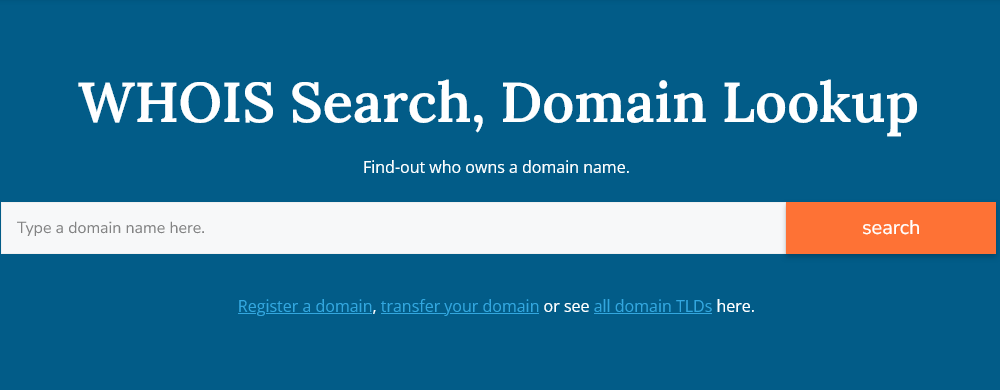
Visit the WHOIS Website and Enter the Domain Name
Open your web browser and navigate to the chosen WHOIS lookup website. On the website’s homepage or designated WHOIS lookup page, you’ll typically find a text field where you can enter the domain name (web address) you want to look up.
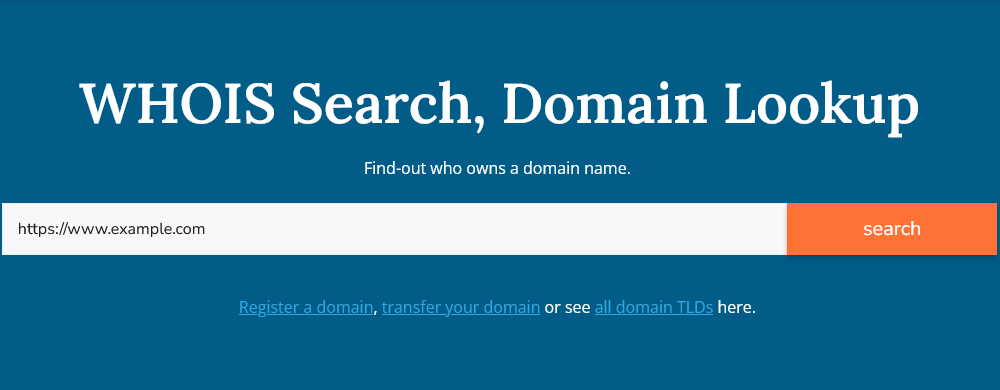
Submit the Query
After entering the domain name, click on the “Lookup” or “Search” button to submit your query. The website will then process your request.
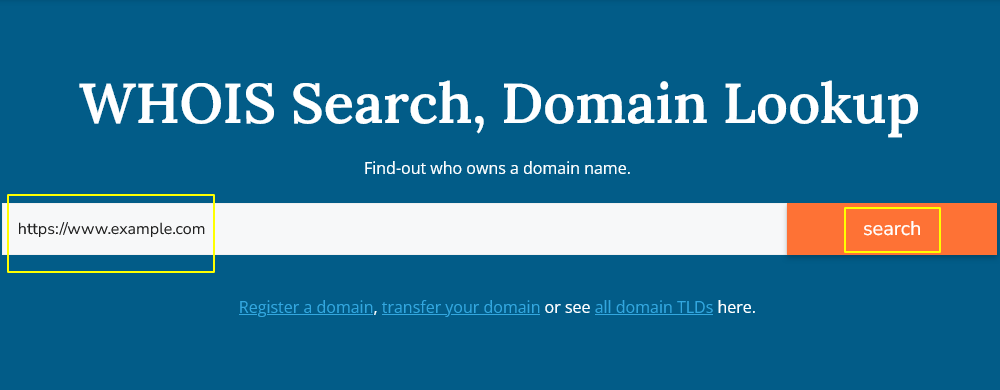
Review the Results
Once the query is processed, the website will display the WHOIS information for your searched domain name. The results will include the domain owner’s name and personal contact information, registration & expiration dates, name servers, registrar information, and domain status.
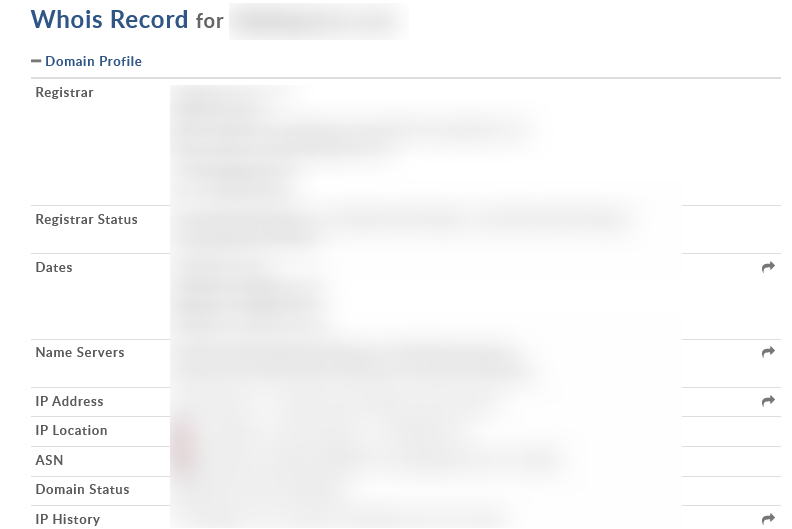
*Note: The exact interface and steps may vary slightly depending on your chosen WHOIS lookup service or registrar. Some websites may also provide additional information or allow you to download a WHOIS verification report for further analysis.
Further reading: A Guide to Buying Domains: Tips, Best Practices, and Benefits
Key Benefits of WHOIS Database
WHOIS Lookup is a valuable tool for obtaining essential information about domain names and their registrants. This service provides a range of benefits for various purposes, including:
Investigating Domain Ownership
WHOIS Lookup enables individuals and organisations to discover the domain owner, helping with due diligence and verifying the legitimacy of a website. This information can be crucial for legal and business purposes.
Checking Domain Availability
Prospective domain name buyers and entrepreneurs can use WHOIS Lookup to check if a desired domain name is available for registration. This helps in securing a suitable domain for websites or businesses.
Identifying Potential Fraud or Spam Domains
By examining WHOIS data, users can uncover suspicious or malicious domain names used for phishing, scams, or spam. It aids in internet security and prevents falling victim to online threats.
Resolving Copyright or Trademark Infringements
Copyright and trademark owners can use WHOIS information to identify and contact domain owners involved in potential infringement. This is a crucial step in protecting intellectual property rights.
Contacting Domain Owners for Legitimate Purposes
Businesses and individuals looking to contact domain owners for legitimate purposes, such as purchasing a domain or resolving issues, can use WHOIS data to find the relevant contact information.
Read: Complete Guide to Domain Transfer: How to Transfer Your Domain to Hosting.co.uk
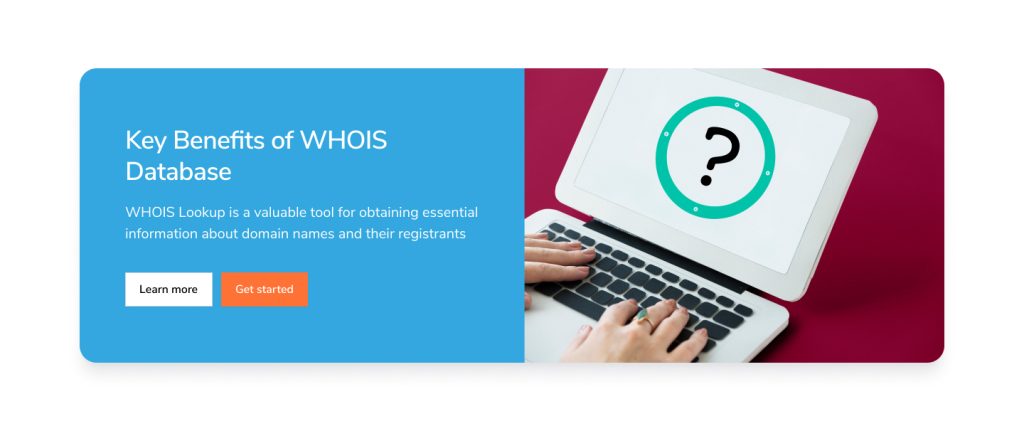
Who Uses WHOIS Lookup?
WHOIS Lookup is a crucial tool used by a diverse range of individuals and organisations for various purposes in the digital landscape.
Internet Service Providers (ISPs)
Internet service providers often use WHOIS Lookup to investigate and resolve network and domain name related issues. For instance, they may utilise it to track down the owners of domains causing network disruptions or to verify the legitimacy of domains hosted on their infrastructure.
Law Enforcement Agencies
Law enforcement agencies leverage WHOIS data in cybercrime investigations. They can identify the owners of domains associated with criminal activities, such as fraud, hacking, or the distribution of illegal content. Example: Detecting the owner of a domain linked to a phishing scam.
Domain Registrars
Domain registrars frequently rely on WHOIS information to manage domain registrations and address customer inquiries. This data assists in verifying domain ownership and contact details. Example: A registrar may use WHOIS data to contact a domain owner about renewing their domain registration.
Intellectual Property Lawyers
Intellectual property lawyers use WHOIS Lookup to identify potential trademark or copyright infringements. This allows them to reach out to domain owners and take legal action if necessary. Example: Identifying a domain owner who is using a company’s trademark without permission.
Cybersecurity Professionals
Cybersecurity professionals regularly use WHOIS database to analyse and respond to threats. They can identify potentially malicious domains, track down threat actors, and enhance their security strategies. Example: Identifying the source of a domain involved in a malware distribution campaign.
Tips For Using WHOIS Lookup Effectively
By following these tips, you can make the most of WHOIS Lookup tool for various purposes, from domain research to cybersecurity and legal actions.
Understanding Registrant, Administrative, and Technical Contacts
Pay attention to the roles of registrant, administrative, and technical contacts in WHOIS database. The registrant is the domain owner, while administrative and technical contacts handle management and technical aspects. This understanding helps in determining who to contact for various domain-related inquiries.
Verifying the Accuracy of Domain Owner Information
Double-check the accuracy of domain owner information provided in WHOIS database records. Ensure that contact details are up-to-date, as outdated or incorrect information can lead to issues.
Checking for Red Flags or Suspicious Indicators
Look for red flags like recent registration changes, privacy protection services, or irregularities in WHOIS database. These can indicate potential fraud or malicious intent.
Utilising Online Tools for Streamlined WHOIS Lookup
Explore online WHOIS lookup tools and services that provide user-friendly interfaces. These WHOIS information tools often offer additional information and features, making the process more efficient.
Further Reading: Hosting.co.uk Releases 850+ ccTLDs & New Domain Extensions
Potential Challenges With WHOIS Lookup
While WHOIS search is a valuable resource, it faces challenges related to privacy regulations, data accuracy, and the use of domain privacy services.
Privacy Concerns and GDPR Compliance
Privacy concerns have arisen due to the public availability of personal information in WHOIS records. GDPR (General Data Protection Regulation) in the European Union has also led to stricter rules about collecting and displaying personal data in WHOIS search tool. This has resulted in the redaction of some registrant information, making it harder to identify domain owners.
Inaccurate or Outdated Information
WHOIS records may contain inaccurate or outdated contact information. Domain owners may not keep their details up-to-date, which can hinder legitimate communication and investigations.
Domain Privacy Services and Their Impact on WHOIS Lookup
Many domain registrars offer privacy protection services that replace the registrant’s information with the registrar’s details. This makes it challenging to identify the actual domain owner, limiting the utility of WHOIS Lookup for certain purposes.
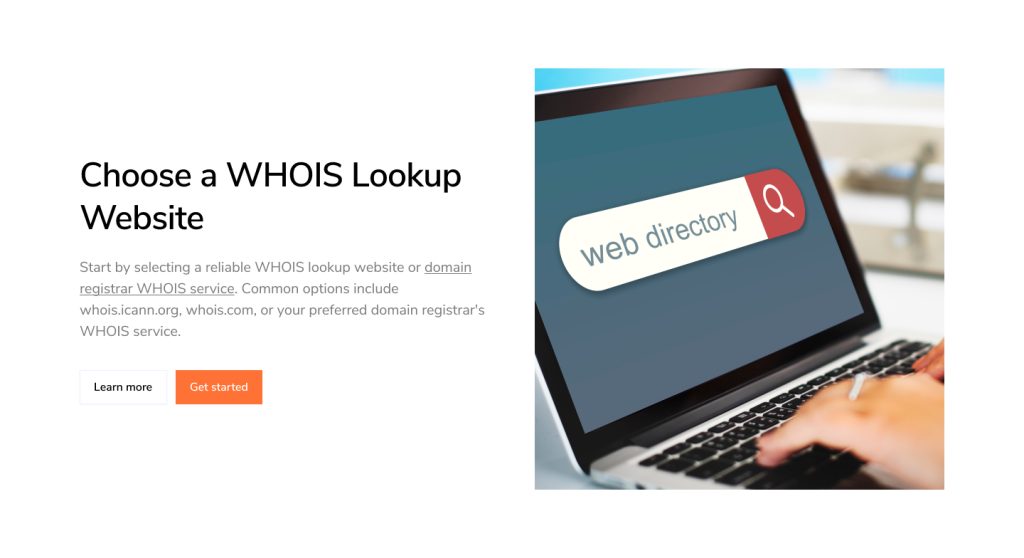
Alternatives to WHOIS Lookup
While the WHOIS Lookup tool offers domain information, there are also alternative methods and services to gather domain-related data. These alternatives complement traditional WHOIS Lookup and offer additional insights into the domain landscape, making them valuable tools for different scenarios.
Reverse WHOIS Lookup
A Reverse WHOIS Lookup allows you to search for domain names associated with a particular registrant or organisation. This can be useful when investigating the online presence of a specific entity or tracking down related domains owned by the same entity.
WHOIS History Lookup
WHOIS History Lookup provides historical WHOIS data for a domain, showing changes and updates over time. This can help track a domain’s ownership and registration history, which can be essential for legal and investigative purposes.
To Summarise
WHOIS Lookup is a crucial resource for obtaining information about domain names and their registrants. It serves various purposes, including investigating domain ownership, checking availability, identifying fraudulent domains, resolving intellectual property issues, and contacting domain owners for legitimate reasons.
Users should use WHOIS database responsibly, respecting privacy regulations and using the data for legitimate and legal purposes. Awareness of privacy concerns and GDPR compliance is also essential to ensure ethical usage.
Moreover, the landscape of WHOIS Lookup tool is evolving, with continued efforts to balance privacy and transparency. Future developments may include improved data accuracy, enhanced privacy protections, and updated regulatory compliance to adapt to changing online requirements.
